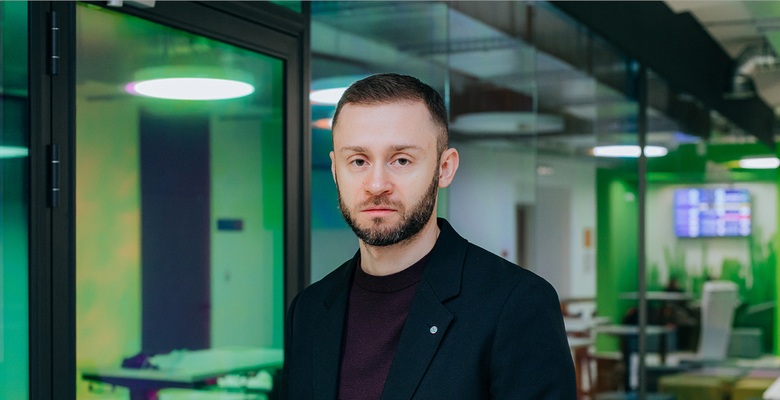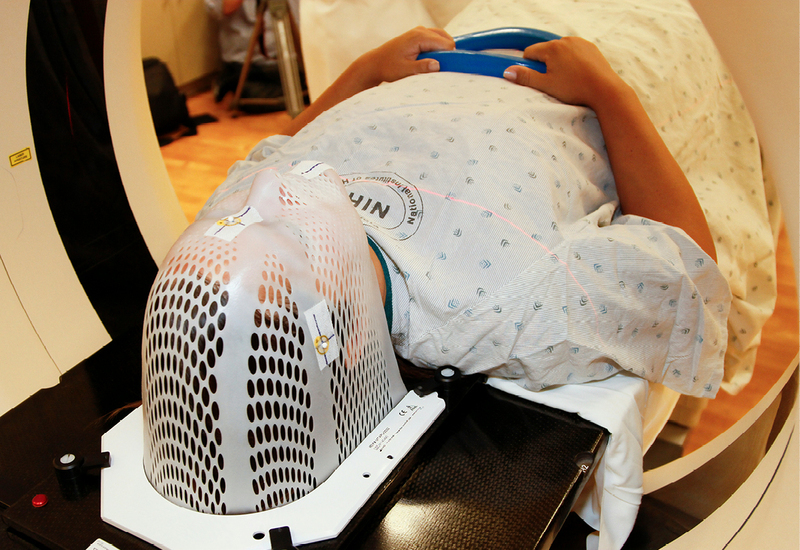
On Monday, 5 February 2024, Buckingham Palace unexpectedly announced some sad news: King Charles III has been diagnosed with a form of cancer. According to reports in the British media, the head of state decided to make this disclosure to avoid public speculation on the subject and raise awareness of cancer in society. Kommersant UK has talked to the oncologist and epidemiologist Anton Barchuk, a researcher at both ITMO University and the European University at Saint Petersburg about the factors increasing the risk of cancer and the global epidemiological outlook for the disease.
Anton, what does the epidemiology of cancer involve?
Modern epidemiology studies the progression of diseases and the factors determining their outcomes. To a certain degree, this is the foundation of evidence-based medicine. Traditionally, some doctors became epidemiologists, but modern epidemiology is a major science in its own right which analyses data and conducts research. It is taught as an independent discipline in many universities, with master’s degrees and postgraduate courses in the field. As for oncological epidemiology, this is a separate field which investigates the distribution of cancers, the factors affecting their spread and outcomes (including fatality) and also the areas of prophylactic medicine, diagnosis and treatment.

What is the overall picture of cancer mortality in Europe?
In developing countries, cancer mortality has been in decline since some point in the 1990s. This is due both to advancements in diagnosis and in the treatment of cancers. Additionally, people's way of life has been gradually changing. In Europe, fewer people now suffer from the cancers which most often lead to mortality, such as stomach, lung and pancreatic cancers, etc. These illnesses are associated with certain risk factors such as smoking and alcohol consumption. As these habits have become less prevalent, fewer people have been afflicted with these dangerous forms of cancer. At the same time, the number of cancer sufferers is growing each year as there are more elderly people, amongst whom cancer occurs more often and more of whom die of cancer than young people. Consequently, the number of cancer sufferers in the world is rising and in some countries, the mortality rate might be rising, but if we take into account the size of the population and its age profile, then in Europe as a whole, the mortality rate is falling. There are different trends for different types of cancer, so it is very problematic to talk about it as if it were a single disease as it is really a heterogeneous group of diseases with diverse prognoses.
According to new research, almost half of all deaths from cancer in Britain are due to six types of the disease; lung, liver, brain, oesophageal, pancreatic and stomach cancers. Are these the most aggressive tumours?
Yes, these are some of the most deadly tumours, with unfavourable prognoses. By contrast, thyroid, mammary and prostate cancers have much better prognoses. Then there is skin cancer, which often doesn’t lead to severe consequences. Of course, there are aggressive melanomas, but recently these have become easier to treat. Non-melanoma skin cancer is not considered a serious disease in itself, in these cases, it is almost 100% curable. The development of many non-fatal forms of cancer can be prevented by taking simple measures, whereas when a tumour has already appeared, treatment is difficult and the prognosis of survival is not so favourable. For example, most incidences of lung cancer are in smokers. At the same time, with any case of cancer, fatal or severe outcomes are possible, the question is only what proportion.
What is the situation for the prevention and treatment of cancer in Britain? What, if anything, sets the British approach apart?
I have a few British colleagues with whom I work and socialise. The British approach to medicine is a little different to general European practice. Overall, when considering any individual country, as well as the healthcare system and support available for cancer sufferers, the demographics and the incidence of risk factors must also be taken into account. According to research published in the British Journal of Cancer, smoking and obesity are the key risk factors. Significantly, the obesity rate in this country is the highest in Europe. In some aspects, the British system is exemplary; a rather effective bowel cancer screening programme has been launched, also the appraisal system for checking the quality of the medical and oncological support provided works. That’s more than can be said for some countries.

What is the greatest risk factor in oncology? Or does genetics decide everything?
On the whole, genetics isn’t so important. There is a small proportion (5-10%) of cancers which are due to hereditary factors, but in most cases, they are associated with risk factors, many of which are preventable. For example, smoking, alcohol consumption, sedentary lifestyles, excessive body mass and human papillomaviruses (HPV) are the key risk factors. For each kind of cancer, there are external factors. For instance, it wasn’t so long ago that red meat was included in the list of carcinogens which may lead to colorectal cancer, among other forms of the disease.
Could rising levels of pollution be seen as a reason for the increase in cancer cases?
Pollution is quite a broad term. We have to talk about specific risk factors such as radon contamination, microparticles in the air, soil or water polluted with a specific type of fertiliser. There are also the effects of workplace hazards. Still, however we measure it, the absolute number of cases caused by these risk factors is insignificant compared to the influence of a person’s lifestyle.
There is also the theory that Covid vaccines weaken the immunity. It is claimed that now the pandemic is over, a wave of cancer cases has begun. Is there any evidence of this?
Yes, a lot of different rumours have been going around. Most of them either are completely unfounded or based on dubious research. This question relates to the core duty of epidemiologists, which is to assess evidence and the appraise quality of research into vaccines, medicine and related issues. There are currently absolutely no signs of a wave of cancer; the incidence of oncological conditions is quite stable. Furthermore, there is no link to coronavirus vaccinations. But this doesn’t mean that the safety of vaccines shouldn’t be monitored; this research should continue, both to avoid undesirable side effects and also to prevent these rumours from arising in society. No vaccine or medicine should be used if its effectiveness and safety have not been proven.
Biochemist Colin Campbell claims in his well-known book The China Study, that a vegetable-based diet is the best modern medicine can offer to fight cancer, multiple sclerosis, type two diabetes, heart disease and other autoimmune disorders. Do you agree with this?
It is believed that the consumption of vegetables and fibre in food may reduce the risk of certain diseases such as bowel cancer, as I've already mentioned. However, I can’t say that this is the best way to fight already existing illnesses. Twenty-first-century cancer treatment is a difficult, complex process in which great progress has been achieved thanks to new methods.
On the other hand, don’t vegans and vegetarians get cancer too?
Unfortunately, anyone may contract the disease. This includes adherents of vegetarian diets, who may smoke. You must understand that while lifestyle changes may reduce the risk of an illness, there is no silver bullet. Still, full protection can be more or less guaranteed in the case of HPV: if vaccination is made before the sex life begins, then cervical cancer will not arise. In all other cases, the likelihood of contracting cancer is simply reduced, sometimes significantly, sometimes not by much.

In Britain, Europe and around the world, are there any common approaches to the fight against cancer?
The fight against cancer has several key aspects. First of all, there is preventative medicine which aims to reduce the incidence of oncological risk factors. This is a global effort and in each country success depends on domestic legislation. One example might be the introduction of excise duty on certain goods, such as alcohol, tobacco or even red meat, which is now on the list of carcinogens. In some countries, we have seen this implemented successfully, less so in others, but overall, smoking has gone down across the board and HPV vaccination programmes have been launched around the world. For instance, Sweden has had tremendous results with their HPV vaccination programme. In Britain the coverage is not bad either; in 2022 60-70% of children and teenagers received the HPV vaccine.
The second area is the treatment of cancers. This depends on local medical standards and capabilities in healthcare provision. Survival rates and post-diagnosis life expectancies depend on how progressive treatment methods are locally. By this measure, European standards are fairly high. What’s more, despite modern cancer treatment techniques being extremely expensive, in most European countries, they are provided for free.
The next aspect is palliative care, for when a patient cannot be saved but their quality of life can be improved. Palliative care provision is a clear sign of a highly developed economy.
The final element is a screening programme which checks people in certain age groups who are asymptomatic and have no complaints. This is to detect early-stage cancer. The aim of these programmes is to reduce mortality. Some countries have launched them, but not so many, as they are quite difficult to organise. In fact, perhaps they are the most difficult aspect of the fight against cancer to set up, as significant efforts are needed to ensure quality control and establish high-quality diagnostic procedures. Additionally, as with vaccination programmes, widespread coverage is required. Still, screening works if at least 60-70% of the population is covered, the more the better. Screening programmes vary greatly from country to country, even within Western Europe, their number, actual effectiveness and quality vary. In Northern European countries such as the Netherlands and Britain, these programmes have been launched successfully, however, with the exception of Slovenia, in Southern and Eastern Europe the picture is less positive; here they haven’t been implemented nationwide, or at least not as effectively.
According to the Guardian, Britain has one of the worst cancer survival rates in Western Europe. How can this be explained?
That’s a good question. I would not conclude that this indicates the standard of British medicine is poor. Many factors can affect survival rates and their calculation is very much dependent on the quality of the data received. Multiple sources are needed, such as diagnosis and mortality data. Inevitably, this may be incomplete or unrepresentative. In some countries, patients with poor prognoses may be excluded from research, but Britain has high-quality statistical data. The second point is the age profile of the population, which may affect the survival rate, regardless of all attempts at statistical correction. It’s also important to note that survival does not simply depend on the quality of the treatment but also on the stage of progression at the moment of diagnosis and on whether there are early diagnosis programmes for cancer in the country. This should also be taken into account, but, unfortunately, for some countries, often these data are not available. There is also the issue of overdiagnosis; in some countries, more people are diagnosed with early-stage tumours, but this does not necessarily lead to a rise in successful outcomes. For example, in many countries the incidence of thyroid cancer is rising sharply, however, the mortality rate from this form of cancer is not changing significantly. As the incidence of cancer rises, there is a corresponding increase in survival rates which is essentially due to overdiagnosis. People learn to check for signs of cancer, such as knots in the thyroid gland and when they find them, they seek medical attention, but these knots would have no effect on their lives if left untreated. This overdiagnosis also occurs in Britain, at least when it comes to thyroid cancer and prostate cancer in men. Naturally, the effectiveness of treatment and the number of people receiving it are also parts of the equation; these factors also affect survival rates and can lead to higher numbers of mortalities in one country than in another. Overall, I’m against comparisons between countries as there are too many reasons why these rates might vary.

When, in 2023 the British Department of Health rejected the adoption of an anti-cancer action plan, oncologists warned of the serious consequences of this step. They asserted that, as cancer is one of the most complex diseases, with exceptionally expensive treatment, it requires a dedicated programme within the healthcare system. What is your view on this?
The WHO recommends creating either a separate plan or national guidelines for the fight against cancer. If the healthcare system is generally efficient and its various components are functional even without a specific anti-cancer strategy, this is a good start. However, on the whole, it’s better to have a national plan.
A Cancer Research UK study has shown that by 2040 the number of people diagnosed with cancer will grow by a third to reach half a million. This will lead to 280,000 deaths from cancer a year (currently there are 167,000).
What can be done now to prevent mortality from cancer?
An important point is that the case count and morbidity are rising, but mortalities are falling. The rise in the total number of cases is due to the ageing of the population, as cancer is primarily an illness of the elderly. A second issue is that if someone currently has no health complaints, the only thing they can do to protect themselves is to eliminate the risk factors we discussed at the start. By doing this we can halve the cancer rate.
Why, in your view, has the British king recently publicly disclosed his illness? What was his motivation? In the past, it was customary to conceal such diagnoses from the public.
Actually, this openness is better, as often star patients help drive breakthroughs in cancer treatment. They may provide additional funding for the fight against cancer and also raise awareness of the problem. Some contend that Ronald Reagan’s bowel cancer diagnosis halfway through his term at the White House and the subsequent publicity of ‘breast cancer’ in his wife Nancy Raegen drew attention to the problem of cancer in the USA. Two years after all this media attention, the breast cancer mortality rate in the US started to decline and it is still falling, although most likely this is a coincidence. A second important point is that, increasingly, cancers have become treatable, which means that people can discuss them openly and cancer is now less often stigmatised by society as a death sentence. If even the king himself can discuss the topic freely this suggests that cancer is no longer as dangerous as it was previously thought to be.






